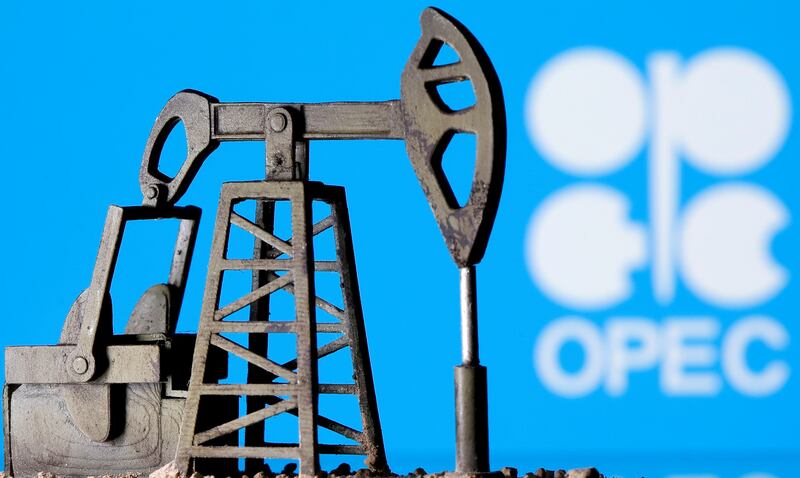Opec and its allies began two days of meeting on Wednesday as Omicron, the latest variant of coronavirus, weighed on oil demand growth.
“Today, the Covid-19 pandemic remains a persistent foe which continues to spook the markets,” Diamantino Azevedo, Angola's minister of mineral resources and petroleum, said at the opening session of the meeting on Wednesday.
“The sudden appearance of a new and potentially more dangerous variant comes on top of new lockdowns,” he said, adding that it was imperative that Opec+ “remain prudent in our approach and prepare to be proactive as market conditions warrant”.
Major producers including Saudi Arabia and Russia will debate future output increases at the two-day meeting.
Omicron cases are surging across the world, forcing a number of countries to impose travel restrictions to contain the spread of the pandemic.
India, one of the top consumers of oil, has postponed the resumption of international flights from December 15. The EU, US, UK and Canada have all imposed travel restrictions on visitors from countries in southern Africa.
The UAE also suspended the entry of travellers from seven southern African countries due to concerns over the new Covid-19 variant.
Renewed movement restrictions have sparked concerns about a slowdown in energy demand that had begun to pick up as economies reopened.
Brent, the global benchmark for two-thirds of the world's oil, is up about 40 per cent year-to-date and trading at $71.82 per barrel. West Texas Intermediate, the gauge which tracks US crude, has gained about 42 per cent since the start of the year and was trading at $68.71 a barrel at 7.25pm UAE time on Wednesday.
US President Joe Biden last week announced that he has ordered 50 million barrels of oil to be released from the Strategic Petroleum Reserve to help bring down energy costs, in co-ordination with other major energy-consuming nations, including China, India and the UK.
The Strategic Petroleum Reserve is an emergency stockpile to preserve access to oil in case of natural disasters, national security issues and other events.
The planned release of oil from a number of strategic reserves “reinforces the necessity of diligent market monitoring to avoid a return to market imbalance”, Mr Azevedo said.
Opec+, which enforced historic production cuts last year to counter the pandemic-induced fall in energy demand, has played a key role in stabilising oil markets so far by gradually increasing supply to the market. The oil exporters' group agreed to increase output by 400,000 bpd in December, despite pressure from the US to supply more.
“Oil markets are rising today on the expectation that the alliance of oil producers will either stay the course on their conservative supply increases or dig their heels in further in response to the threat posed by the Omicron variant,” Louise Dickson, senior market analyst at Rystad Energy, said.
Opec+ plans to bring a total supply of 2 million bpd back to markets by the end of the year. But the group is unlikely to make major changes to output in its latest meeting, analysts say.
“The recent slump in oil market prices was likely an overreaction to the Omicron news, but Opec+ is ready to wait for more data on the efficacy of current vaccines before making any significant changes to its output strategy,” Ms Dickson said.
Opec will hold a meeting with its allies, including Russia, on Thursday to assess market conditions and decide on future production levels.
“We need to remain united, focused and ready to adapt to any changing market dynamics, as we have always done,” Mr Azevedo said.







